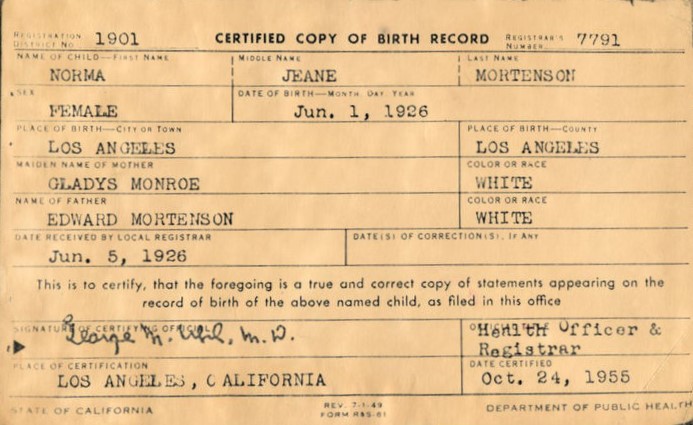
A long time ago in a kingdom far away there lived a fairmaiden by the name of Fnu MNU. She married a handsome young knight named Sir Arthur LNU and thusshe became Fnu (MNU) LNU. Wait! Stop!Does this sound a bit like a page out of YOUR family tree?
Are you spendingsleepless nights prowling the Web in search of your elusive MNU and LNU ancestors? Or perhaps you've encountered them insomeone's GEDCOM file on WorldConnect atRootsWeb, and after doing more searches have come to the conclusion that there are many researchers out therehunting those wild and crazy LNUs.
Well, it's time to let you in on one of genealogy's best kept secrets: LNU, MNU, andFNU are not real names. They are acronyms. (Acronyms are combinations of the first letters/syllables ina group of words to form a new groupingof letters that can be pronounced as a word.) They are:
- First Name Unknown (FNU)
- Maiden Name Unknown (MNU)
- Last Name Unknown (LNU)
Theyare first cousins to the mysterious UNK ancestors that you might have spent timetracking down until you realized thatUNK was short for "unknown."
Researchers have used these acronyms and other symbols and abbreviations foryears, with little or no uniformity fromfile to file, to indicate the unknown or missing names. The meaning of these acronyms is often unclear and can bemistaken for actual names by new‑and notso new‑genealogists. After all, we all have a few oddly spelled names in our trees, so what's aMNU or two?
On another note, becareful should you encounter any DITTO ancestors in your line. DITTO is an actual surname, but it is frequentlymistaken as a surname by those readingan enumerator's "ditto" entry to denote that the name is the sameas the one listed above it. (DITTO andDITTOE are Anglicized forms of a Huguenot name of unexplained etymology. The names are found in North America by1700. Ditto also is a short form of theItalian personal name Benedetto.)
All of this name confusion serves to reinforce the notion that while user-compiled genealogies are avaluable tool in research, you need toexamine original records to verify or refute what the compiled records indicate. When possible examine therecords for yourself.
What can you do tomake your files clear as to the abbreviation or acronyms you use to indicate any unknown given names,maiden names, or surnames? There are noperfect solutions or worldwide standards. Some compilers, especially those who use genealogy software, put a questionmark to indicate that a name is notknown, but this is not recommended as some creative family historians use one question mark, while others use two orthree, and a ? for a name might mean onething to you and something else to another researcher
A recent unscientificsearch at WorldConnect http://wc.rootsweb.com revealed the following are being used as names:
Unknown-- 2,742,761
LNU/Lnu -- 14,134
UNK/Unk -- 39,332
FNU -- 139
MNU/Mnu -- 3,357
?? -- 78,201
?,? -- 605,694
??? -- 140,665
___ (underscores of variablelengths) 6,244
- (one hyphen) 6,491
MRS/Mrs (as a given name) -- 555,699
[--?--] 3,125
Obviously there is no standard for indicating that a name isnot known‑hence the confusion. Thesearch even turned up an ancestor by the name of Unk FNU -- with FNU probably used as an acronym for FamilyName Unknown. Not surprisingly there wasno birth date or place for her and one wonders why such information is even included. It serves no purpose.
Unknown maiden names should be indicated by using square brackets with a single em dash (or twohyphens, if the software, typesetting orword processing programs will not accept or use em dashes), or use a question mark amid the em dashes -- e.g.Catherine [--] or Catherine [--?--].
The same format can be used when the given name is unknownor in doubt. The latter happenssometimes when you learn your female ancestor married someone whose surname is known, but not his given name.Such references can be recorded as [--?--] Smith. Some of the popular genealogy software has to be forced to usethis format.
In formal genealogical writing, the English tradition of putting a woman's maidenname in parentheses -- Elizabeth (Smith)Jones -- is commonly used by many genealogists. Therefore nicknames should not be put in parentheses,but rather enclosed in quotation marks.Example: Catherine "Cathy" [--?--] Jones. Again, your genealogy software program may ormay not handle nicknames in this formator might require some tweaking. For those female ancestors with middle names that might be (or mistaken for)surnames, such as Mary Morgan Kirby, itis important to indicate that Kirby is her maiden name. If her nickname was Polly, and she married a Smithher name should be recorded so that in afamily history publication it appears as: Mary "Polly" Morgan (Kirby) Smith.
Remember you do not have to fill in every field in your genealogy software. If you do not know thegiven or maiden name of a woman, eitherleave the field blank or use [--?--]. Her given name is not MRS, and certainly not Mrs. King William ofEngland.
Using acronyms or various symbols when names are unknown isnot a good idea because you want to makeit clear that the name is unknown so as not to send others and generations of future researchers on anendless and futile search for the wildLNU. Don't put your cousins in the position of having to ask "What's MNU? Or who is Unk FNU?
Previously published in RootsWeb
Review: Vol. 6, No.35, 27 August 2003




